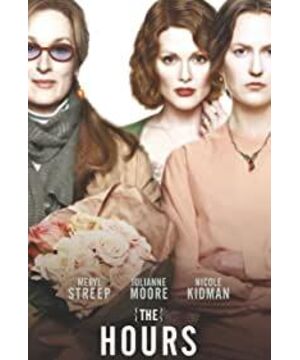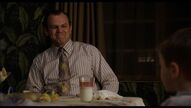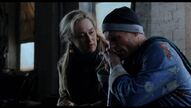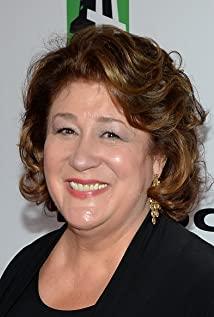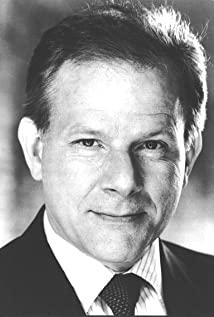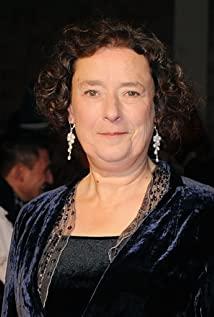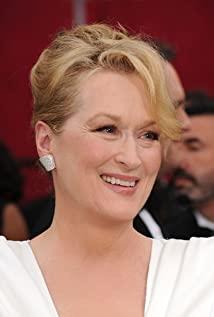Facing The Hours too rationally and creating a sense of happiness too deliberately led to a trend-living a life that is not one's own.
1941 Virginia Woolf
1951 Laura Mcgrath/Brown
2001 Clarissa Vaughan all
three. So how should these moments be faced and live together? The film shows us the pain and struggle of the three of them. I will talk about what I saw.
1. VW
Woolf and her husband live in the country. Because W has severe depression, and the fascination with her sister that we saw later. She is in a monitored environment. Doctors, husbands, servants... She longs for freedom and can make her own decisions instead of others telling her what to do, because he thinks he should have such rights.
But we saw the servant complaining that she could not give instructions, but after hearing her request, she showed all kinds of impatience and dissatisfaction. Others can be angry about doing what they don't want to do, others want her to be the master but they don't really accept it...so she thinks maybe these little things will kill her. Leonard said "If I could walk midmorning. I'd be a happy man" when she asked for a walk, which also burned her severely. In order to make sure that she was taking medicine and not getting worse, Leonard asked herself to stay by her side, so that both parties lost their freedom and the life they wanted. But she doesn't need it at all.
2. LM
Laura doesn't seem to really love her husband, and perhaps vaguely likes her female neighbor. She thinks all this is reluctant. When you wake up in the morning, your husband will tie yourself up by saying that you will eat only when you are in your son. Even if the husband cares about his own ideas, he keeps narrating to attract his attention to this family. Just like when the husband told him how to support him at the last supper, their lives seemed extremely happy...Laura still felt it was not easy to bake a cake. Admit to my son that if he doesn't make cakes, my father doesn't know that we love him...
She has a good son. Will see all my sorrows in my eyes. Will cry during sleep. I would ask my mother "can I help?" "can I do it" to tell my mother that I can help her share the burden together. He even knows how to say "it isn't that difficult" "I love u" to comfort and keep her mother. Even years after the mother tried to commit suicide, she helped her to complete this thing and relieve herself.
3. CV
will be analyzed later.
This movie did not deliberately distinguish between les and feminism. Because it is true that there are both and cannot be parted in this film. It's not that it's not the subject. The film originally expressed the life all the time through the self-exploration of women and the awakening of consciousness. For these three kisses, there are also both. Seeing that everyone has a lot of discussions on this issue, I really want to talk about the symbolism of this point.
1. The
kiss of Woolf&Nessa woolf, in fact, from the very beginning when the sister appeared, the director's lens was very obvious: the sister stopped, Then he kissed W's face to greet him, and W narrowed the distance between the two of them. The sister's pause is a hesitation about whether to get in touch with woolf, and it is also a suppression of feelings (if you don't pause, we will see that they are not kissing on the cheek). This shot can be seen as a reminder of the director's relationship between the two. As for woolf, she longed for her sister's approach and understanding from the beginning. Before the film, we all saw that woolf was afraid of contact with others, and even kept a certain distance from Leonard, but took the initiative to approach his sister. Even after holding her sister. It is a sharp contrast (of course, the analysis here does not mention historical facts, and woolf is at least not without special feelings for women).
Finally, after kissing her sister, she said "u think I may one day escape" is actually not only a question about the status quo, but no one understands how to escape from depression and lonely life. There is also a question to my sister: u think I may one day escape from us. In addition, you can also notice that my sister kissed W's hand before leaving, but suddenly pulled away when her eyes met W's lips and struggled to turn away. The interpretation of that scene is: God, what I did just now. Answering w's question about "escape" is too guilty to say. Because she knows that all this is not easy for w. At this time, woolf shouted Nessa's name in a hoarse voice, just to say that this was a conversation that was more like a personal relationship with his sister: Nessa don't leave, you know I can't escape.
Woolf was standing there with an agitated and almost breaking emotion. In addition to watching her sister leave and return to London, she could not get an invitation, but also deeply hoped that her sister would not leave. She asked her sister what she did when she went back to serve as a reflection.
And this paragraph is interspersed with the call of Nessa's child. When N got in the car, hugged Angelica and said "stay close" but looked in the direction of woolf. It should be regarded as a call for the child's reason and reality.
Just like they were drinking tea together in the room before, woolf was immersed in the world of novels, and the two boys laughed at what woolf said twice. After the first ridicule, the youngest daughter Angelica walked over and approached woolf, Nessa's stiff expression turned into a smile, and then explained to her daughter Woolf's talent and world. After the second mockery, Nessa sighed, as if dissatisfied and recovered.
Before the first scene of Nessa's arrival, when he was going to bury the bird, he told the plot of the novel, and when he left, it was Angelica with her side and close-ups. Compared with boys, they all show a sense of female autonomy. Women should understand that women give more understanding and support.
It can be mentioned that in the story of 2001, on the day of Richard's death, after his mother Laura came to Clarissa's house to talk, it was also Clarissa's daughter who came to Laura to understand and care.
2. Laura & Kitty
As for the second kiss, it happened when Kitty described the difficulties faced by her own health, but she still cares about whether her husband can accept it. Facing the painful Kitty, Laura walked over and kissed her to comfort her and said "just forget about Ray". This sentence hides a kind of hope that women will be free from the idea of putting men first. Since Kitty has her own health problems, she should think more about herself instead of relying on her husband and only worrying about her husband. From the previous dialogue, we know that Laura herself has always thought about whether a man coming back from the battlefield means that he can get everything he wants. And like Kitty, most women in that era did not have the awakening of their own consciousness.
At the same time, Kitty enjoyed and submissively accepted Laura's kiss in this scene. And say "u're sweet". In fact, it was implying that she had accepted Laura's comfort in her heart. She needed to be comforted but she didn't admit it. So after this moment, Kitty, who was still in pain, immediately regained his spirit and left.
If Laura has a love for Kitty, there is evidence to be found. After the kiss, Laura asked "u didn't mind?". In fact, if it is just a comforting kiss without this emotional thought, there would be no such a saying. This is a tentative question. But Kitty pretended that nothing happened and left. Only the son Richard sees all this and all the worries of his mother (this will be mentioned separately in other sections).
In the conversation between her husband and her before going to bed at night, it was mentioned that Kitty was hospitalized. Laura was very sad in the bathroom and said to herself "only I knew that she could disappear". It was like to K's life and what she was going to do in the afternoon. Things are combined together. There was too much pain in her heart, and she showed that she cares more about K than others, and there are some things that only she can understand.
On the other hand, comparing Laura's attitude towards her husband and Kitty can make this relationship traceable. In the morning, we saw the husband come back and did everything that a wife should do in that era. I prepared breakfast for my children, bought flowers for my wife for my birthday, and washed the cups myself... But when Kitty came, I asked if I needed to make coffee. Especially when he knocked on the door, he arranged his face specially. There are contrasts and hints of suspicion in the arrangement of the entire scene.
3. Clarissa&Sally
themselves are both lovers. The kiss didn't have more erotic colors. Just pure gratitude and cherishment. This kiss happened after Clarissa and Laura talked, Richard has passed away, this place will be more from C's own problems. C is a person who lives in the past, and has always believed that his best experience stopped at the meeting/being with Richard at the age of 18. I have been seizing the past to compare, thinking that life in these years now seems to be nothing. I have become very lonely all the time. So R said "Isn't it strange? most ordinary morning in anybody's life" and he tried to tell Clarissa in his own way that her current life is no different from the most memorable day that day. She should know how to cherish the present and remember the beauty of the present. So he jumped downstairs, hoping that both he and Clarissa would get the relief they deserve. Live now.
Clarissa got it. She knew she was too paranoid when she faced Louis and her daughter in the afternoon. I didn't cherish Sally what she did for herself. Appreciate what she has done for herself. So she kissed Sally, wanting to express a kind of apology, a kind of cherishment and gratitude.
After that, the day ends. Clarissa went out of the bedroom, closed the window and turned off the light, smiling. Looking at the flowers on the cabinet and around the room, there was a sudden joy and love. She will live for herself.
The whole film may be slightly complicated and preaching. But what I want to express should be almost said in the character monologues of these films.
I hope to be able to face The Hours of life.
As Woolf said "u cannot find peace by avoiding life"
View more about The Hours reviews


